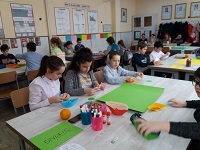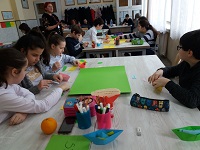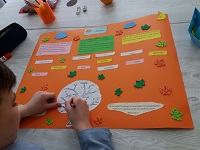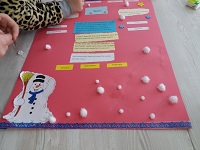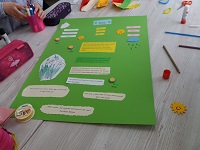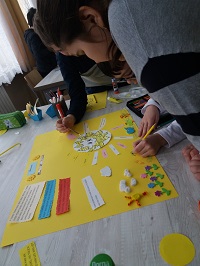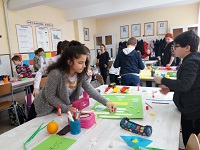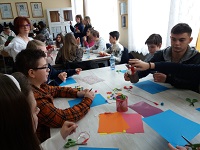TRANSNATIONAL LEARNING AND TEACHING ACTIVITY – ROMANIA – 5 – 9 MARTIE 2018
|
TARA
|
NUME &PRENUME
|
SOSIRE
|
PLECARE
|
|
Croatia
|
Petra Brkičić
Tonka Krička
|
duminica
04.03 – 22:00
|
vineri
09.03 – 23:30
|
|
Polonia
|
Michał Pachniewski
Maria Nalberska
Zofia Kowalczyk
Katarzyna Maksym
|
duminica
04.03 – 17:00
|
sambata
10.03 – 10:00
|
|
Germania
|
Cindy Tai
Lajos Illes
|
duminica
04.03 – 1:00
|
sambata
10.03 – 8:00
|
|
Portugalia
|
Francisco Silva
Gabriela Santos
|
duminica
04.03 – 22:30
|
sambata
10.03 – 8:00
|
PREPARATIONS - GETTING IN TOUCH WITH THE GUEST PUPILS - WHATSAPP SESIONS
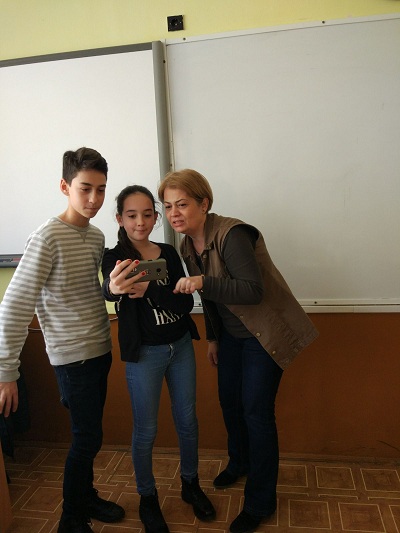
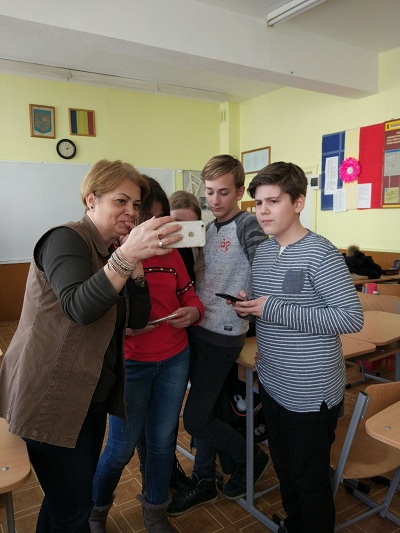
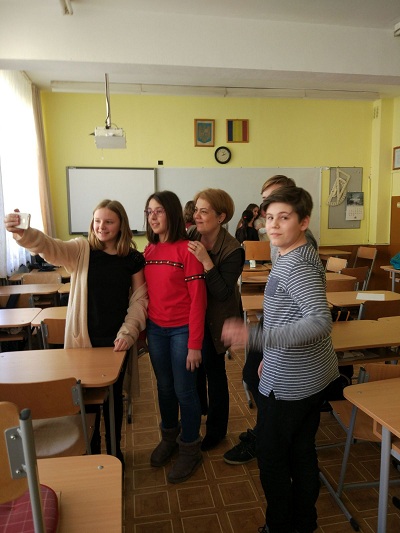
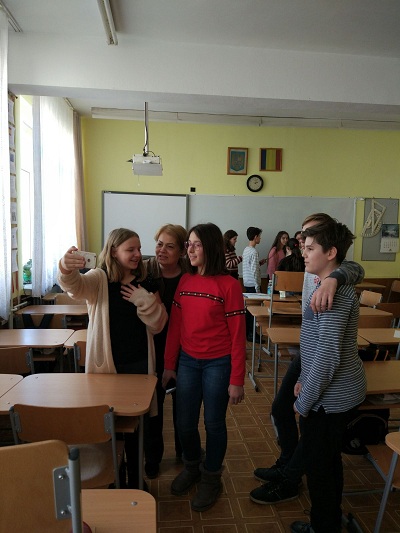
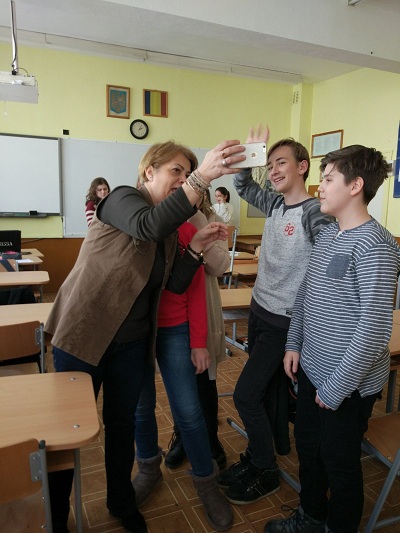
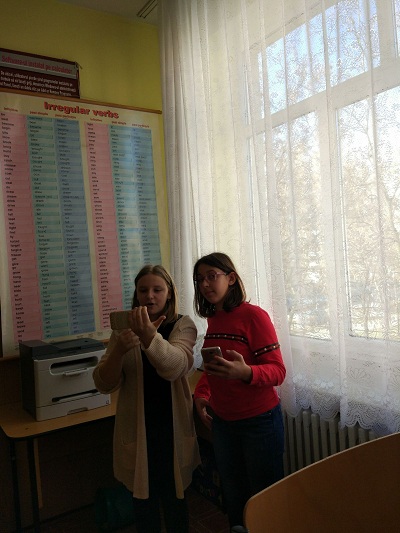
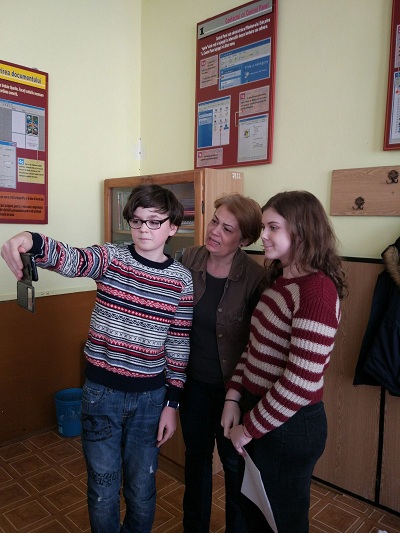
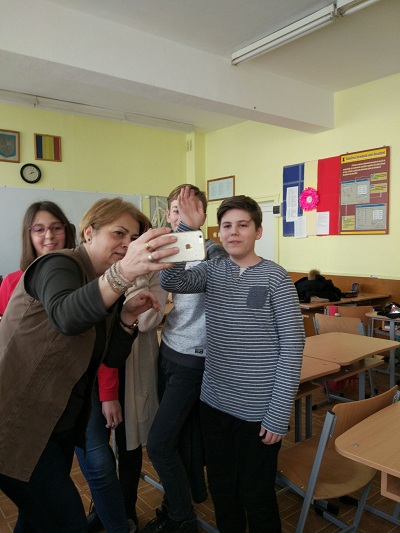
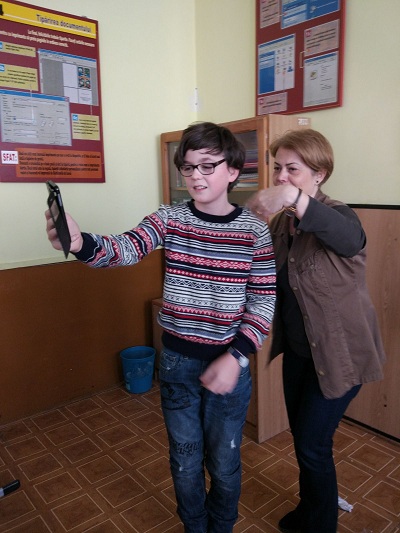
TRANSNATIONAL TEACHING AND LEARNING ACTIVITY
SATU MARE – ROMANIA
5TH – 9TH MARCH 2018
March 4th - Sunday
Arrival partners.
Transfer by host families.
March 5th – Monday
|
Teachers
|
Students
|
|
800 – breakfast at the hotel
|
800 –Students have breakfast in host families.
|
|
900 – welcoming guests by the school principal at school
|
|
1100 –official visit to the mayor of the town and municipality.
|
|
1300 – lunch – Melody Restaurant
|
|
1430 – Visit at the secondary school - Odoreu
1530 – A sweet visit – “Wawi” chocolate factory
|
|
1700 –Host families pick up students
|
|
1900 – dinner at the hotel
|
|
March 6th – Tuesday
|
Teachers
|
Students
|
|
800 – breakfast at the hotel.
|
Students have breakfast in host families.
|
|
900 – share of teaching methods – Content and Language Integrated Learning- social studies - the UN Convention on the Rights of the Child workshop – Camelia
Dumitru (history and social studies teacher)
|
Participation of guests pupils in the school lesson
|
|
1000 – coffee break
|
|
|
1030 - 1130 – teachers meeting – sharing experince - PPT about previous projects of the partners
|
Participation of guests pupils in a school lesson
|
|
1030 - 1130 – Games in the school gym – examples of good practice - Raluca Kiss – P.E. teacher
|
|
1300 – lunch at the Restaurant Melody
|
|
1500 – Meet the speed – sponsorship of the Romanian Driving Club
|
|
1730 – Host families pick up students
|
|
20:00 – dinner at the hotel
|
Students will have dinner with host families
|
March 7th – Wednesday
|
Teachers
|
Students
|
|
700 – breakfast at the hotel.
|
700 –Students have breakfast in host families.
|
|
730 – Sightseeing tour: Satu Mare – Vama (Potter's wheel - demonstration of traditional clay pottery making) - Negreşti Oaş - Huta Certeze - Săpânţa: Merry Cemetery - Sighetu Marmaţiei ( A meeting with the recent history - Memorial of the Victims of Communism and Resistance - Lunch “Alex” restaurant - Baia Mare - Satu Mare
|
|
1900 – returning at the hotel
|
- Host families pick up students
|
March 8th – Thursday
|
Teachers
|
Students
|
|
800 – breakfast at the hotel.
|
|
|
900 - 1000 – teachers meeting – planning the future meetings – distributing tasks
|
Students will participate in lessons with their hosts
|
|
1000 - 1030 – coffee break
|
|
|
1100 - 1200 – learning through games - workshop – examples of good practice - Sorana Bojuc–Teodorescu – english teacher
|
Participation of guests / hosts pupils in the lesson
|
|
1200 -1330 – 1. school festivity our talented pupils will perform for the guests
2. special moments dedicated to each of the partners
3. handing the certificates of attendance
1400 –lunch Melody restaurant
1630 – 17:30 Interactive sport games – Crossfit club Host families pick up students
|
|
1900 – Dinner at the hotel
|
|
March 9th – Friday
|
Teachers
|
Students
|
|
800 – breakfast at the hotel.
|
800 – Students will participate in lessons with their hosts (Students have breakfast in host families).
|
|
900 - 1000 – share of teaching methods - examples of good practice - Monica Ciontoș - english teacher
|
|
1000 - 1030 –coffee break
|
|
|
1030 - 1130 –short play as an example of learning– The legend of Martisor – Romanian traditional legend – coordinator Carmen Man – Romanian teacher
|
|
1100 - 1200 – Workshop
1230 lunch - Melody Restaurant
|
|
1700 – Farewell dinner - invitation
|
|
March 10th– Saturday
Partners’ departure
DAY 1
Welcoming guests - at school
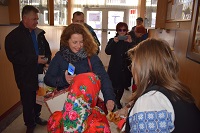
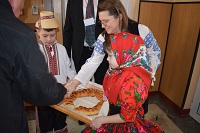
Official visit to the mayor of the town and municipality
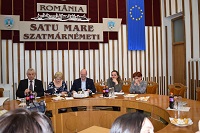
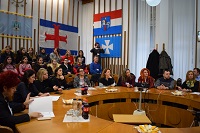
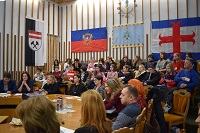
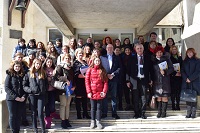
Visit at the secondary school - Odoreu - workshops
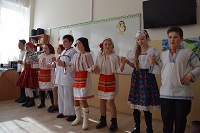
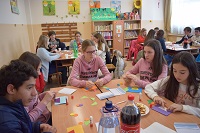
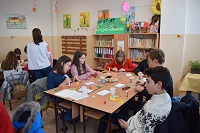
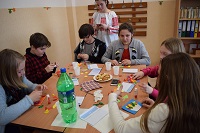
A sweet visit – “Wawi” chocolate factory
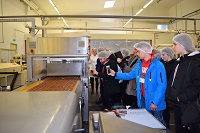
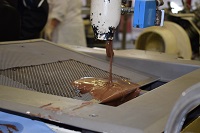
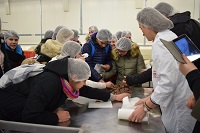
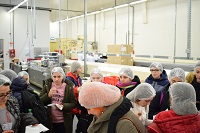
DAY 2
Share of teaching methods – Content and Language Integrated Learning- social studies - the UN Convention on the Rights of the Child
workshop
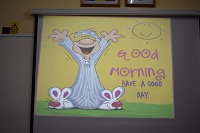
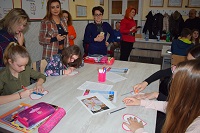
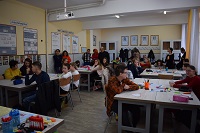
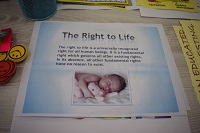
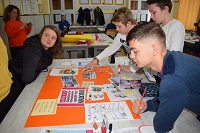
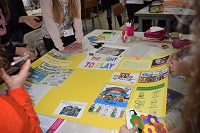
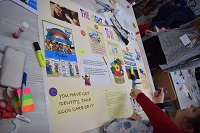
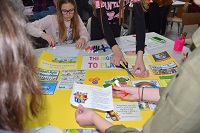
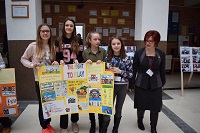
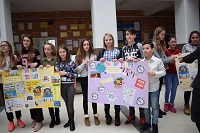
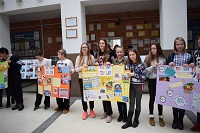
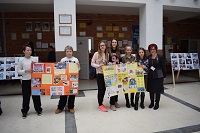
Teachers meeting – sharing experince - PPT about previous projects of the partners
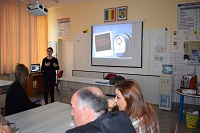
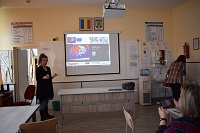
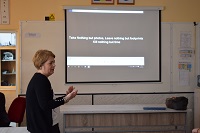
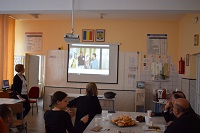
Games in the school gym – examples of good practice
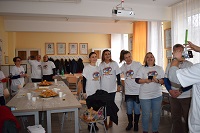
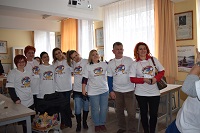
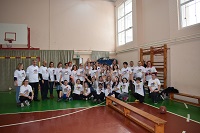
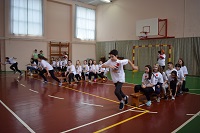
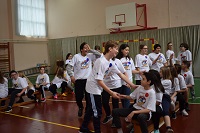
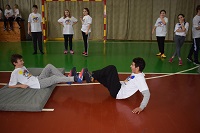
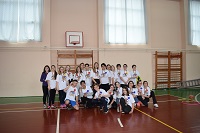
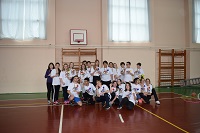
DAY 3
Satu Mare – Vama (Potter's wheel - demonstration of traditional clay pottery making) - Negreşti Oaş - Huta Certeze
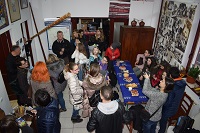
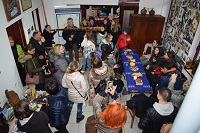
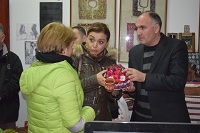
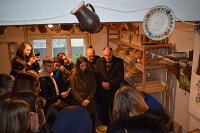
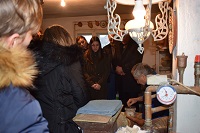
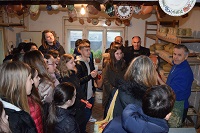
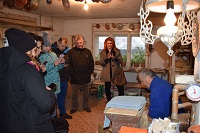
Săpânţa: Merry Cemetery - Sighetu Marmaţiei
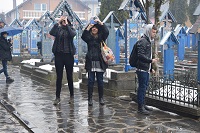
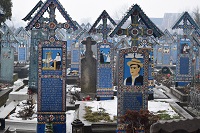
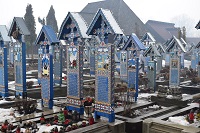
A meeting with the recent history - Memorial of the Victims of Communism and Resistance
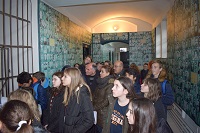
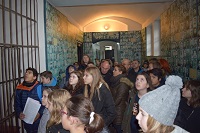
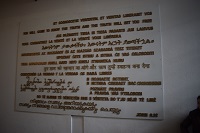
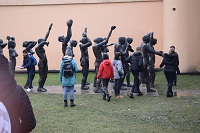
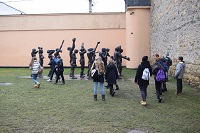
DAY 4
Teachers' meetings – planning the future meetings – distributing tasks

Teachers’ meeting report – 06.03. 2018
According to the program, on March 6th, the teachers meeting was attended by all the coordinators from the participating countries.
Gheorghina Ciontos presented the educational system in Romania in a PPT and there were discussions about the differences and similarities between the Romanian educational system and those of the partners.
Maria Silva the project coordinator from Portugal presented the Comenius Project developed by the school and also highlighted the important objectives of the project such as:
- to boost the participants’ motivation to learn and use foreign language in formal and informal context.
- to promote innovative strategies supported by the ICT tools and photography
- to encourage communication
Sorana Bojuc Teodorescu presented the previous project of the school, “ Take nothing but
photos, leave nothing but footprints, kill nothing but time” that developed between 2014 – 2016 and spoke about the project’s topic. The project film made by the Turkish partner at the end of the project was also presented.
The coordinator presented a PPT containing a SWOT analysis based on the centralised data from the participants in the TTLA in Radom – Poland. It was acknowledged by all the participants that following this meeting there was a lot of stong points proving that the activity in Poland was a real success.
Nicole Abdeli, the German coordinator also presented the previous project that the partner school developed previously, and spoke about the advantages of having such projects, interesting things that have changed the pupils' life and the effects this project has had on the learning process
Teachers’ meeting report – 08.03. 2018
According to the program, the second teachers’ meeting was held in “Lucian Blaga” school. The co-ordinators in the partner countries discussed and agreed on the following:
- to create the album with the activities carried out during the two years, the partners will send to the responsible country, Croatia, photographs and a brief description of the activities carried out, other than those carried out during the TTLAs. The description will follow the same pattern for all countries.
- the general exhibition about hands in hands games in pictures will be held in Turkey, and the Turkish team will set the requirements for the exhibition. The partners will send all the necessary details to the Turkish coordinator – deadline – 16th of March.
- the date for the TPM in Turkey was set and agreed by all the partners from 25th to 27th of June as working days for the final report.
- by the end of March all the partners will send to the Turkish coordinator three activities/ lesson plans containing teaching through games which will be gathered in a common methodology book as one of the results of the project. Again the lesson plan will follow the same pattern for all countries.
- Turkish team is responsible for making the project film, 15 – 20 minutes containing aspects of both TTLAs and TPMs.
TRANSNATIONAL TEACHING AND LEARNING ACTIVITIY
5TH - 9TH MARCH, 2018
SATU MARE, ROMANIA
ROMANIAN EDUCATIONAL
SYSTEM
- According to the Law on Education adopted in 2011, the Romanian Educational System is regulated by the Ministry of Education and Research
Each level has its own form of organization and is subject to different legislation:
- Kindergarten is optional between 3 and 6 years old.
- Schooling starts at age 6 (sometimes 7 ), and is compulsory until the 10th grade (which usually corresponds to the age of 17 or 16).
- Primary school comprises two 4-grade periods:
- Elementary school (Şcoala Primară) — grades I to IV
- Gymnasium (Gimnaziu) — grades V to VIII
- High school (Liceu) — four or five grades (grades IX to XII/XIII)
- Vocational education (Învăţământ profesional şi tehnic), which can prepare students for careers that are based in manual or practical activities.
| |
|
4
|
Post high school
|
Tertiary education-
non university
|
3
|
Non compulsory
|
|
18
|
XIII
|
3
|
|
High school
- upper cycle -
|
Upper secondary
|
3
|
|
17
|
XII
|
High school
-upper cycle-
|
2
|
|
16
|
XI
|
Completion year
|
|
15
|
X
|
2
|
High school
-lower cycle-
|
Arts and trades school
|
Lower secondary
|
1
|
Compulsory
|
|
14
|
IX
|
|
13
|
VIII
|
General school
|
-
|
|
12
|
VII
|
|
11
|
VI
|
1
|
|
10
|
V
|
|
9
|
IV
|
Primary school
|
Primary education
|
|
8
|
III
|
|
7
|
II
|
|
6
|
I
|
|
5
|
Preparatory group for school
|
0
|
Kindergarten
|
Pre school education
|
Non compulsory
|
|
4
|
Middle group
|
|
3
|
Beginners
|
MINORITY , RELIGIOUS, AND PRIVATE EDUCATION INSTITUTIONS
- In districts where a linguistically-defined ethnic minority exceeds 10% of the total population, free public schooling is provided in that language: some of the classes are taught in that language, and the language and literature of the ethnic group is "the main language studied", although Romanian remains compulsory. There are classes (or whole schools, depending on the existing population) for different linguistic minorities: Hungarian, German, Rromani, Polish, Ukrainian, Serbian, Greek, Bulgarian, Czech, Turkish, Slovak, Ukrainian and Russian.
ROMANIAN SCHOOL SYSTEM
- Teacher-student relations are quite formal, but this formalism has evolved in the past few years to a friendly, but respectful relationship. This is due to the difference of mentality between generations. While elder teachers usually demand respect and are exigent, some younger ones, who better understand what it is like to be in school, are friendly and understanding, rather than strict.
- The relationship with parents is improving . Parents are summoned to school whenever needed to get the grades and the knowledge their children have accumulated. Every school year there are meetings between the school principal and the parents discussing the investments made in the school.
Those teachers able to break the formalism and reach out to the students are very highly regarded both by officials and by students.
HIGH SCHOOL
- There are five types of high schools in Romania allowing access to university, based on the type of education offered and their academic performance. All of these allow for a high school diploma, access to the Bacalaureate exam and therefore access to University studies. The choice of high school curriculum does not limit the choices for university. For example, a graduate of a Mathematics-Computer Programming (Real) Department of a National College may apply to a Language Department of a University without any problem.
High school enrolment is conditioned on passing the National Test and participating in the National Computerized Repartition.
High school studies are four years in length, two compulsory (9th and 10th year), two non-compulsory (11th and 12th year). There are no exams between the 10th and the 11 years. There is also a lower frequency program taking 5 years for those wishing to attend high school after abandoning at an earlier age.
Curriculum
The curricular framework includes:
- The core curriculum (common core and differentiated curriculum), containing the compulsory subjects and the number of allocated hours, designed and approved at national level
- The school based curriculum, designed at the level of the school
The syllabus
- for the core curriculum subjects, the syllabus is elaborated by commissions of specialists, it is endorsed by the National Board for Curriculum and approved by the minister of education
- For school based curriculum, the syllabus is designed at the level of the school and approved by the specialty inspector of each county
Text books
- Alternative textbooks can be elaborated for the same syllabus
- The ministry approves the textbooks which can be used in schools
- The teachers have the right to choose the appropriate textbook, from the approved list
Teacher guidelines are usually elaborated by the National Board for Curriculum
The National Bacalaureate Exam certifies the pupil’s capacities at
the end of high-school and allows access to HIGHER education
system.
OTHER ACCESS WAYS TO EDUCATION:
- Second chance schools (compulsory education and professional qualification, 3.5 years);
- Professional education (professional qualification in art and craft schools, 2 or 3 years studies for students with a low rate of school performances);
- Post-high schools (eg. pedagogical, sanitary, economic profiles, 3 years studies, after Upper Secondary Education).
The process Education and Training
Romania has adopted and explicitly mentioned in the
curriculum the 8 domains of key competences:
- Communication in the mother tongue
- Communication in foreign languages
- Mathematical literacy and basic competences in science and technology
- ICT skills
- Learning to learn
- Interpersonal and social competences
- Entrepreneurship
- Cultural awareness
Learning through games - workshop – examples of good practice
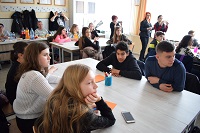
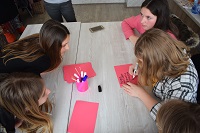
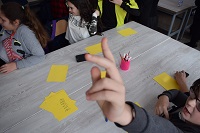
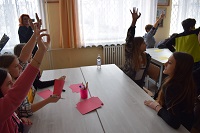
Game - The train of knowledge
1. How is the project called?
2. What are the countries involved in the project?
3. Which country is the coordinator of the project?
4. How many years does the project take? When did it start? When will it end?
5. What is the name of the Portuguese town where school is located?
6. What is the name of the town in Croatia where school is located?
7. What is the name of the place in Turkey where school is located?
8. What is the name of the German city where school is located?
9. What is the name of the Romanian town where school is located?
10. What is the name of the Polish city where school is located?
11. Who won the competition for the project logo?
12. What are the colors on the Turkish flag?
13. What are the colors on the Croatian flag?
14. What are the colors on the Polish flag?
15. What are the colors on the German flag?
16. What are the colors on the Romanian flag?
17. What are the colors on the Portuguese flag?
18. What is the object that is taken from one country to another and where the impressions of the participants are gathered?
TEACHING LANGUAGES - WORKSHOP FOR PARTNERS - TEACHING/LEARNING VOCABULARY IN PARTNERS' LANGUAGE
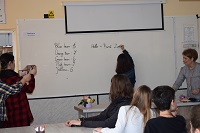
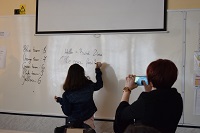
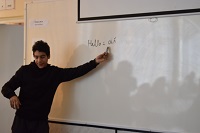
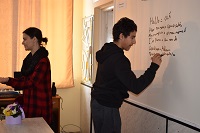
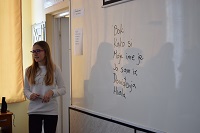
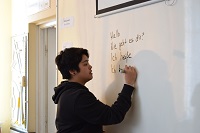
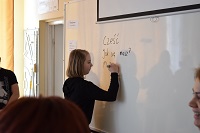
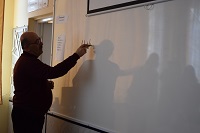
School festivity our talented pupils performed for the guests
special moments dedicated to each of the partners
handing the certificates of attendance
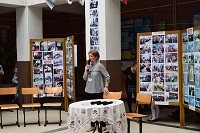
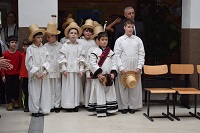
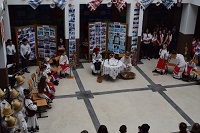
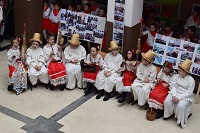
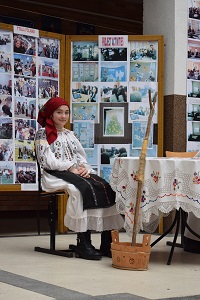
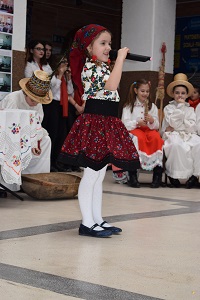
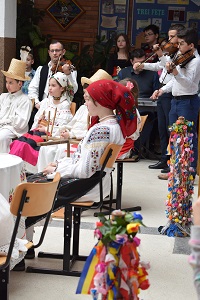
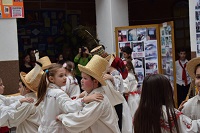
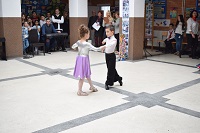
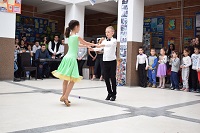
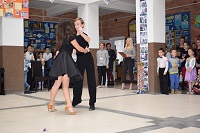
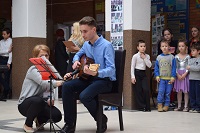
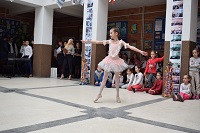
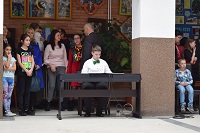
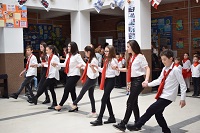
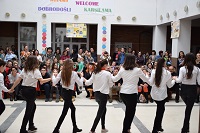
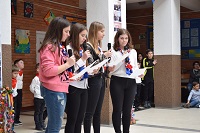
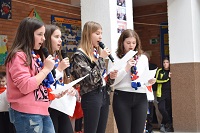
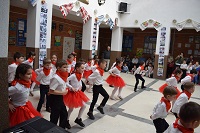
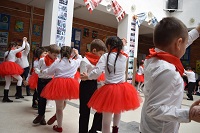
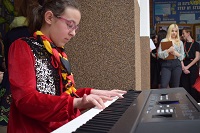
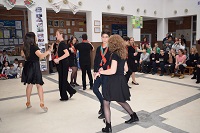
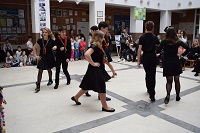
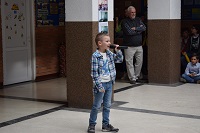
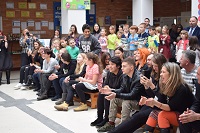
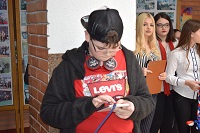
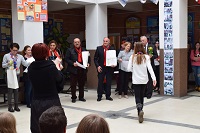
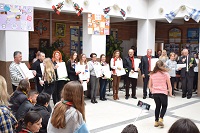
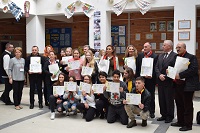
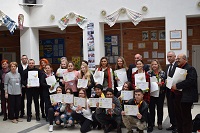
Interactive sport games – Crossfit club
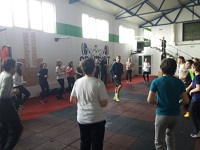
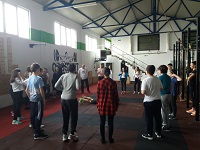
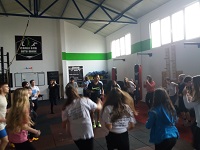
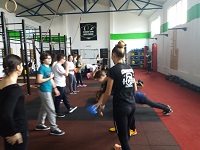
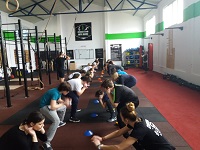
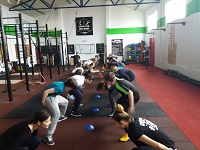
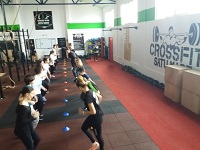
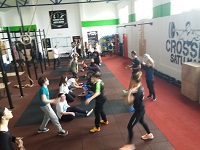
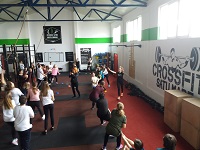
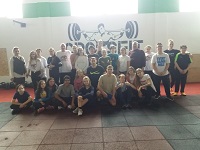
Share of teaching methods - examples of good practice - the four seasons
